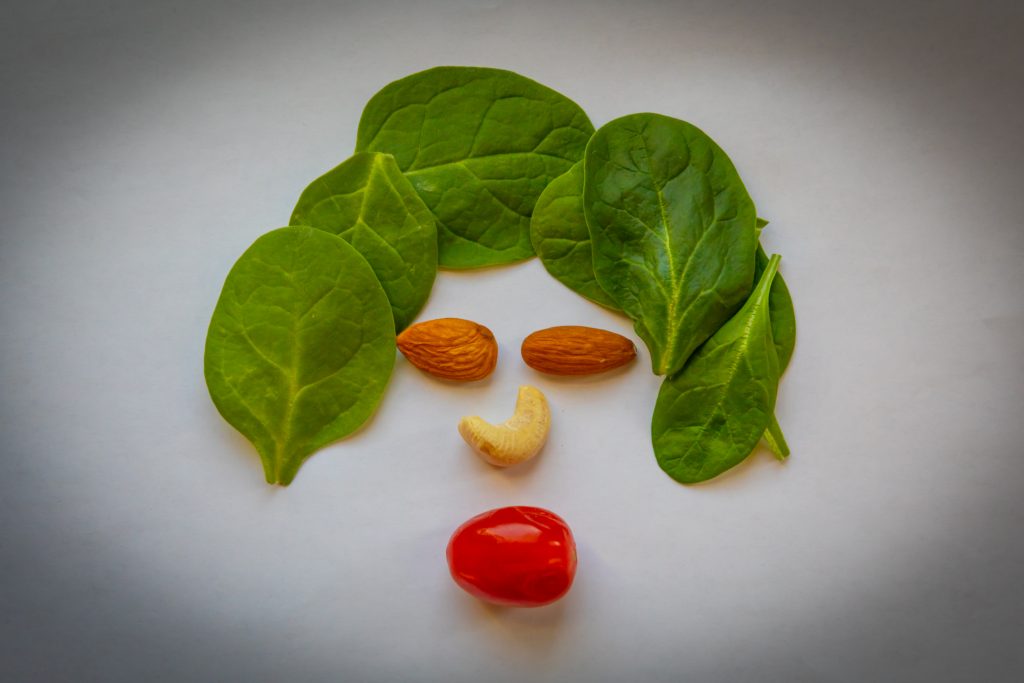Daily Habits of a Mildly Obsessive Middle-Aged Man

By Robert Brodey
Honestly, I didn’t set out to be a middle-aged man (it was fun being “young”), but life happens, and here I am at 55 years-old doing what I do, figuring out things on the fly (how to be a decent parent, how to stay healthy, and how to navigate the fast-changing world, yada yada…). From all this life-exploration and active fumbling and bumbling, certain habits have begun to occupy space in my day, which I feel have been helpful for my sense of well-being. Some of these things I invited in. Others just happened.
First off, I understand that partaking in “healthy” habits doesn’t guarantee a longer life, but I’m honestly more interested in quality of life than living to 99 years of age. My ideal life, in fact, is one filled with mobility and quality experiences then a quick fall off the metaphorical cliff at the very end – hopefully later rather than sooner. To me, this is preferable to a long grinding decline in quality of life over decades [I am currently reading Dr. Peter Attia’s compelling book, Outlive – The Science & Art of Longevity, which unpacks ideas around pro-active lifestyle changes to ward off the slow killers like cancer, diabetes, and heart disease].
Second off, my best efforts haven’t prevented me from having issues with, say, my lower back or ankle. So this is definitely not a post about making your body “bullet proof,” which is a claim made by some workout specialists that I find quite suspect (inevitably, you will have injuries, but hopefully your good health and habits make for a speedy recovery).

In no particular order, these are some of my daily habits that have brought some measure of well-being to my life:
- Every morning, I take a two-minute cold shower. Even if I have had a terrible sleep, the cold shower makes me more alert than any cup of coffee. Cold showers are known to reduce inflammation, boost the immune system, and improve health and mental health [I occasionally visit cold plunge and sauna facilities in Toronto, too]. Sometimes, I end off with a hot shower, and sometimes I leave it to my body to warm itself back up.
- Daily Intermittent Fasting, for 14-17 hours a day (i.e. if I stop eating at 7pm the night before, I don’t eat again until 9am to 12pm the next day. Daily fasting is known to lower blood sugar and stress levels, stimulate cellular regeneration, and train the body to use fat as fuel, which can help balance energy levels throughout the day. Also: I tend to do all my low intensity morning exercise in a fasted state, which can help amplify the positive effects of fasting.
- On the eating tip, I am still mostly eating a vegetarian diet, averaging between 1-5 servings of chicken, fish, or red meat per month. Focusing on plant-based foods supports gut health, which, in turn, can greatly improve physical and mental health. It also improves the immune system, cellular health, and reduces inflammation (that doesn’t mean I don’t eat potato chips or big pieces of chocolate cake now and again).
- As I have been making my way through my 50s, I have found alcohol isn’t really my friend. I occasionally still enjoy a beer or a shot of tequila, but I generally don’t have more than 1-4 drinks a month. And if I’m in a stressed mood, it’s even more reason to avoid drinking alcohol! A low-alcohol lifestyle benefits blood sugar levels, blood pressure, inflammation, and less fatty build-up around the liver. And I’m not alone in my desire to reduce my alcohol intake. Just ask all those busy mocktail-tenders at your local bar or club.
- Daily Exercise. Whether it’s a 4 kilometre easy run/hill intervals, a 15-17 kilometre ravine run, a spin on the bike, weights and chin-ups at home, or a quick fix at the climbing gym, I always feel more grounded and less stressed after exercising, particularly if I take it outside. And I really try not to use inclement weather as an excuse not to go out, which can help build mental fortitude! Near-daily exercise doesn’t have to be about pushing up against the bounds of what is humanly possible. I think we need to think about how to improve fitness with longevity/healthspan in mind, meaning that we can walk pain-free up and down stairs and sit on the toilet unattended at age 80 or 85 or 90. When I was in St. Lucia this winter (read the post here), I met an American running coach and sub-3 hour marathoner who was now well into his 70s. We talked a lot about running and I told him about my less than extreme running program, and he said that if he had a chance to do it again, he would have backed off, because training and performing at the highest level can lead to some wear and tear that can catch up to you in later years. In fact, he spoke of an Olympic-level athlete he trained who, in her sixties, can now barely walk (of course, lots of people who never get off the couch also suffer mobility issues). Part of my exercise routine also includes daily mobility practices to keep the body in a general state of limberness.
- Bonus exercise: Every week I do at least one jogging hill repeat session at my local grassy hill (or paved one, if conditions are too wet). Among my intervals are several backward walking/jogging repeats, which are known to improve joint mobility, balance, and strengthen the knee as well as the leg muscles. And it’ll give you a quad burn like no other!
- It’s rare that a day goes by that I don’t do Yoga Nidra, a guided 20 minute meditation, which I keep at the ready on my mobile phone. The mindfulness practice focuses on scanning the body and the breath and leaves me calmer and feeling more whole. It also recharges my energy bank to power through the day. My sister Deborah introduced me to the practice back in 2008, and I’ve never looked back (thank you!).
- Breathing Consciously. This comes in many forms, whether it’s inhaling and exhaling slowly/deeply or more intense practices like the Wim Hof method or tummo breathing. And for the past few years, I have focused on keeping my mouth shut and nose-breathing when I’m not eating or talking, which helps filter out allergens, boosts oxygen intake, and can help function as a natural destresser. It also prevents your mouth from drying out (a dry mouth = more dental health issues).

- Brain gain: Last summer, one of the soccer coaches at our local pitch told me about doing the Schulte Table tests, which I’ve been doing daily since. It consists of 5х5 rows and columns, with the numbers 1 to 25 randomly arranged in the squares. The goal is to search and find each of the numbers, starting from 1, in the shortest possible time, all while staying focused on the middle of the table (it gets easier with time, I promise!). It’s considered one of the most efficient training methods to improve attention, memory, and peripheral vision. It can also assist with quick reading and pin-pointing key information in a document. I use this online tool: https://drafterleo.github.io/schulte/. The soccer coach also recommended the Stroop task, which is like flash cards, where the name of a colour is different from the colour of the word, and you have to say the colour of the word, not the word. I do this one regularly, but not daily. The Stroop task fires up several parts of the brain for processing and reconciling the contradictory information (word/colour) and can be used to measure a person’s selective attention, processing speed, and executive processing abilities. My understanding is that doing it regularly will actually improve these benchmarks, too. Here is a video with the Stroop task: https://www.youtube.com/watch?v=gjesfzWozo4

- Brain gain 2.0: In an ideal world, I would be spending 6 months a year in French and Spanish speaking countries to maintain my language abilities and neuroplasticity. But for now, I can’t be that guy, so daily I do Duolingo, an online language program. And even though it’s the poor cousin of immersive language studies, l do feel my brain getting a workout, which can stave off memory loss and other forms of cerebral degeneration (my memory is still pretty shart, but who knows what it would be sans Duolingo!). In a landmark 2007 paper, researchers found that among people with dementia, those who were bilingual developed symptoms, on average, four years later than those who weren’t, as per NYT (https://www.nytimes.com/2024/01/16/well/mind/dementia-bilingual-language.html?smid=url-share).
- Brain gain 3.0. Read daily. Not only does the experience enrich our lives by increasing our knowledge, empathy, and vocabulary, but it can lower blood pressure and promotes brain health (call it chin-ups for the mind).
- Express your love. Tell your friends and family members how you feel regularly. Life is short, and I think it’s important we tell the special people in our lives how special they are to us. It’s a beautiful way to spread some positive vibes, particularly in a world that seems to amplify bad and sometimes cruel behaviour. We can’t fix the world, but we can try to be kinder and more compassionate toward friends, family, and strangers alike. And you get a bonus Dopamine rush for your gratitude!

*
Do you have anything that is part of your daily routine that you’d like others to know about? Let me know, and I’ll add it to my list (and maybe I’ll incorporate it into my own daily routine)!
**Please keep in mind that I’m not an expert on, well, anything, so it’s best to consult a doctor, if you are interested in trying out anything new with an inherent risk factor.
Leave a Reply
You must be logged in to post a comment.